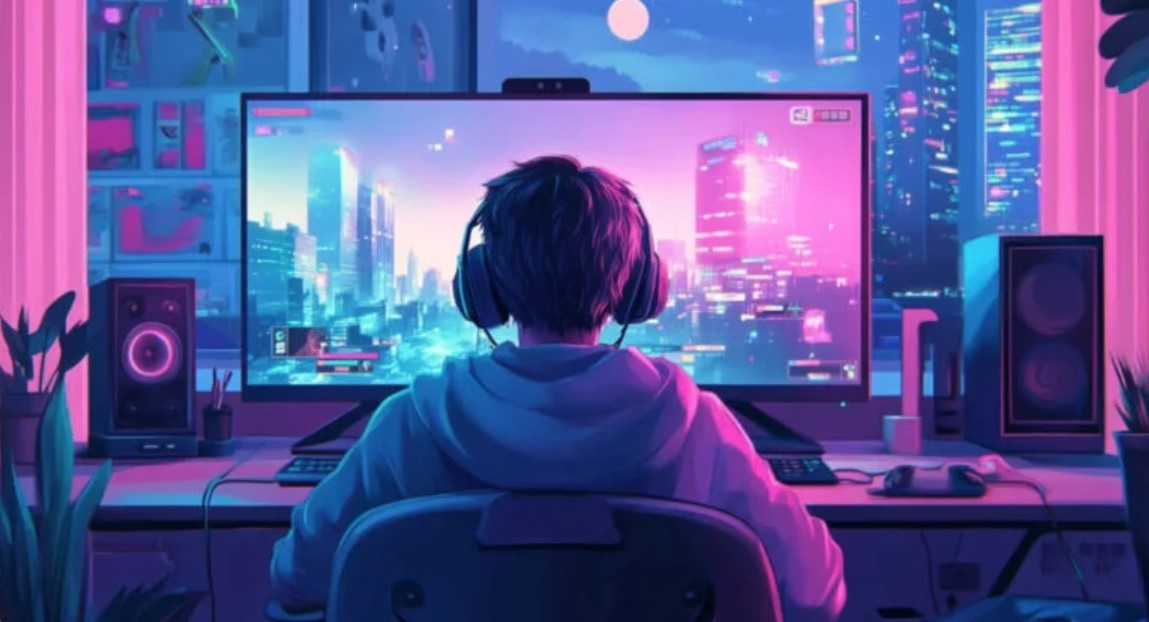Online deposit 5000 has revolutionized how people engage with entertainment, creating a virtual space where creativity, competition, and connection converge. From casual mobile games to sprawling virtual worlds, it has become a central part of modern life, cutting across demographics, cultures, and geographies.
What is Online Gaming?
Online gaming refers to video games played over the internet, often involving multiple players simultaneously. These games can range from simple puzzles and trivia to complex, immersive experiences featuring realistic graphics, dynamic gameplay, and vast multiplayer communities.
With the advent of cloud computing, powerful consoles, and smartphones, online gaming has grown to become more than just a pastime—it’s a culture, an industry, and a way of life for millions.
The Evolution of Online Gaming
The journey of online gaming has been marked by rapid technological advancements:
- 1980s–1990s: Early multiplayer games like MUDs and local-area network (LAN) games allowed users to connect, sparking the first inklings of community-driven gaming.
- 2000s: Broadband internet fueled online experiences in games like Counter-Strike and World of Warcraft. Gaming consoles also integrated online services, such as Xbox Live and PlayStation Network.
- 2010s–Present: Online gaming has become a mainstream activity. The rise of esports, mobile gaming, and social platforms such as Twitch has transformed gaming into a global phenomenon.
Why People Love Online Gaming
- Connection and Community: Online games provide spaces for people to meet, collaborate, and form friendships, often transcending geographic and cultural boundaries.
- Challenge and Competition: From casual players aiming for high scores to professionals competing in tournaments, gaming offers endless challenges.
- Immersion and Creativity: Many online games, such as Minecraft and The Sims, allow players to build and customize their own worlds, tapping into their creativity.
- Accessibility: With the proliferation of free-to-play games and affordable smartphones, gaming has become more accessible than ever.
Popular Genres in Online Gaming
Online gaming encompasses a wide variety of genres, ensuring something for every type of player:
- First-Person Shooters (FPS): Games like Call of Duty and Valorant offer fast-paced, adrenaline-filled action.
- Battle Royales: Titles such as Fortnite and PUBG pit players against each other in large-scale survival matches.
- Role-Playing Games (RPGs): MMORPGs like Elden Ring and World of Warcraft immerse players in detailed worlds with compelling narratives.
- Sports and Racing Games: Games like FIFA and Forza Horizon bring the thrill of sports and speed to gamers’ fingertips.
The Impact of Online Gaming
1. Economic Contributions
The gaming industry is a powerhouse, generating billions of dollars annually. Esports tournaments now rival traditional sports in viewership and prize pools, while virtual economies in games like Roblox and The Sandbox create real-world value.
2. Social Dynamics
Online games have become digital gathering places where players can socialize, attend virtual events, and even participate in educational activities.
3. Career Opportunities
The rise of professional gaming, game streaming, and content creation has opened doors to unconventional career paths, providing income and recognition to talented individuals.
Challenges in Online Gaming
1. Addiction and Overuse
Gaming addiction is a growing concern, especially among younger players. Developers are now implementing features like playtime reminders to encourage healthier habits.
2. Toxic Behavior
Harassment and bullying can tarnish the gaming experience. Companies are working to combat this with stricter moderation and reporting tools.
3. Digital Divide
Not everyone has access to the internet or mahjong ways 2 hardware, highlighting a gap in inclusivity despite the medium’s global appeal.
The Future of Online Gaming
Looking ahead, innovations like augmented reality (AR), virtual reality (VR), and artificial intelligence (AI) are poised to redefine gaming. The concept of the “metaverse,” a shared digital universe, suggests a future where gaming is interwoven with social, economic, and even professional activities.
Moreover, blockchain technology and NFTs are creating unique ownership opportunities within games, though they remain controversial.
Conclusion
Online gaming is not just a form of entertainment—it’s a cultural force that fosters creativity, community, and competition. As technology advances and more people gain access, its influence will only grow. Whether playing casually or competing at the highest level, online gaming has something for everyone, making it a cornerstone of modern digital life.










